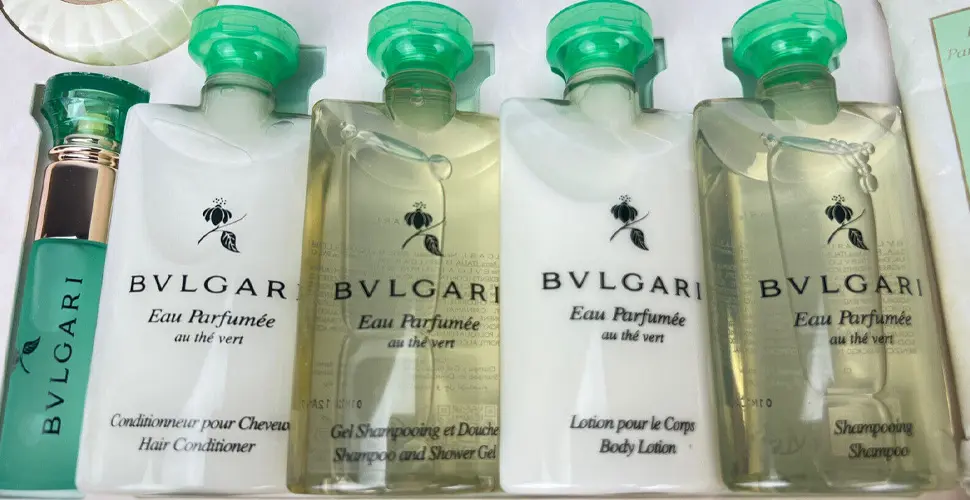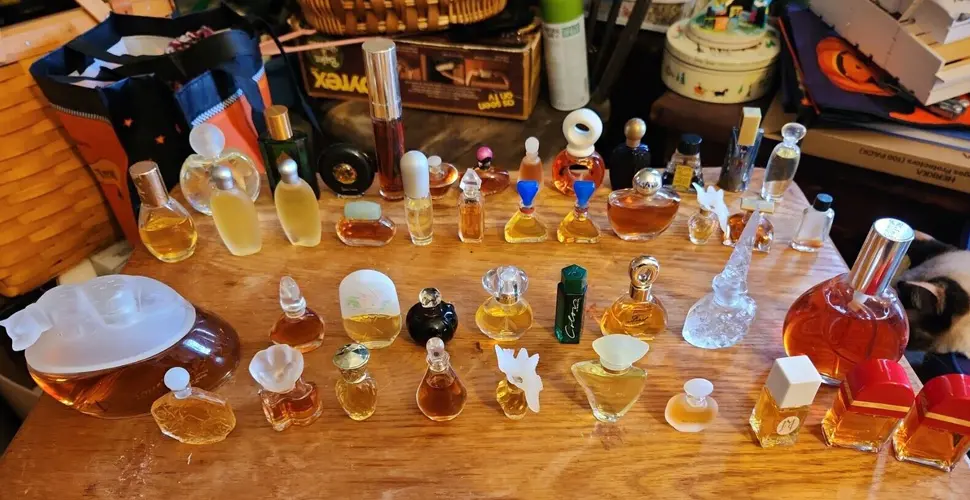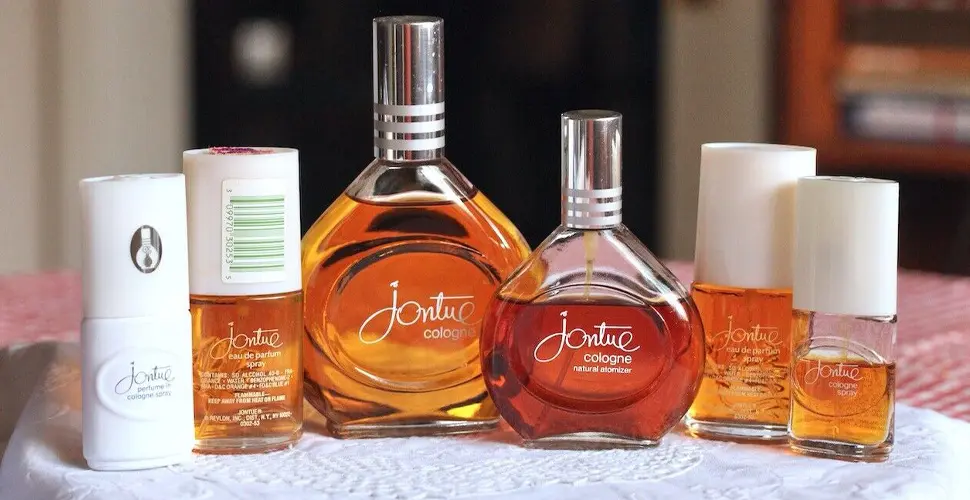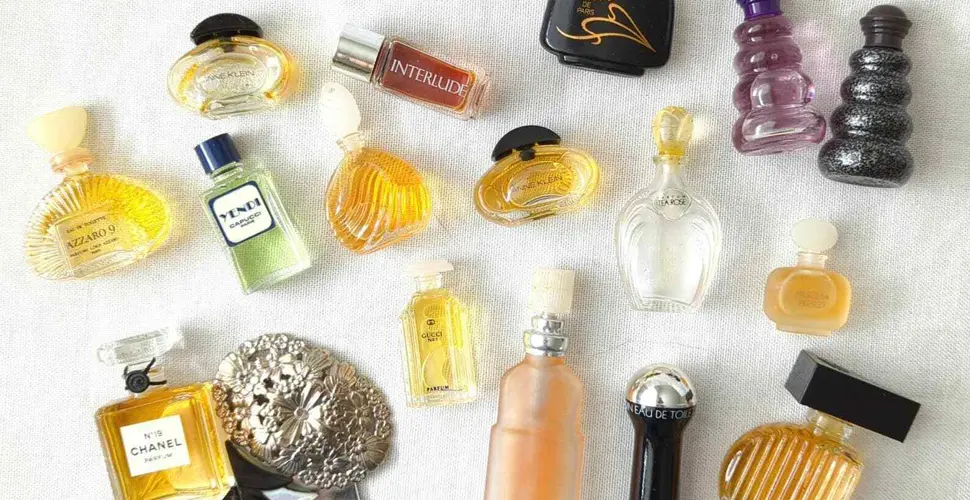The History of Aromatherapy and Its Connection to Fragrance
Deana Stallings
- 04 Jan 2023

The History of Aromatherapy and Its Connection to Fragrance
Introduction
From the scented delights of ancient Egypt to the aromatherapy baths of pre-Civil War England, scenting your self and your environment has been a part of human life since the beginning of humanity.
Have you ever wondered how the practice of scenting and aromatherapy has evolved over the centuries? Perhaps you’re already familiar with aromatherapy, but don’t know how it is connected to fragrance or vice versa.
In this blog post, we will explore aromatherapy, its history, and its role in the production of contemporary fragrance, as well as its widespread use today.
“Scent is the soul of any environment and adding natural aromatic essence to an atmosphere can make all the difference” – Nature’s Gift Aromatherapy™
From Cleopatra’s personal perfumer to the modern day spa, we’re going to dive deep into the history of this practice and discover the connection between ancient Aromatherapy and the scrumptious fragrances we’ve come to know and love.
What is the connection between ancient Aromatherapy and modern day fragrance?
The connection between ancient Aromatherapy and modern day fragrance is that aromatherapy was one of the earliest ways for humans to scent their environment, and it’s also believed to have healing powers. Today, many perfumes and colognes are produced using essential oils and fragrant extracts from plants, flowers and herbs, paying homage to this ancient practice.
History of Aromatherapy
Do you ever wonder why you get a headache when you smell certain scents but feel relaxed when you smell other aromas? Well, wonder no more because that’s aromatherapy!
Aromatherapy is a holistic treatment that uses the essential oils extracted from plants to improve your physical, mental, and emotional wellbeing. By inhaling certain fragrances, your sense of smell alerts your brain of its presence, leading to a cascade of beneficial reactions.
It combines the powerful sense of smell with unique fragrances and treatments to create an uplifting and restorative therapeutic effect. You may hear aromatherapy referred to as “essential oil therapy” or simply, “aroma.”
The connection between aromatherapy and fragrance is quite simple; the airborne molecules of the essential oils are inhaled for the health benefits. So, if the smell is sweet and calming, it may help promote feelings of relaxation and serenity. If a fragrance is sharp and earthy, it may help boost energy or focus.
This is a popular form of alternative medicine and it has been around for centuries. There are two main types of aromatherapy: inhalation and topically applied. For inhalation, the essential oils are diffused with the intention of benefiting through the sense of smell. For topical application, the oils are diluted in a base of sweet almond oil, coconut oil, or other vegetable-based oil.
It’s important to know, though, that aromatherapy may not be suitable for everyone, so before using it, please read and understand the safety guidelines.
Now, as to why this all sounds so inviting- Well, it’s because fragrances have the ability to make our minds wander and spark emotions. Aromatherapy brings this one step further to create an even more impactful and therapeutic outcome. So, the next time you reach for that lavender candle, let its fragrance do its magic!
Ancient Cultures and Aromatherapy
No amount of eucalyptus and lavender can erase the long, tangled history of aromatherapy. An ancient practice that has roots stretching back thousands of years, the origins of this healing methodology are just as diverse as the fragrances used in its practice.
The earliest recorded use of aromatherapy comes from Ancient Egypt, where it was practiced in a blend of religious and medical contexts. Incense was burned in the temples during religious ceremonies and religious cleansings were often accompanied by fragrant baths and fumigation.
For the Ancient Egyptians, the spiritual and therapeutic effects were closely intertwined. They believed that aromatics, when blended together in a specific way, could help release trapped emotions, connect with spirits, and ultimately bring balance to the body. Rituals involving aromatics for healing often saw healers inhaling the vapors of essential oils combined with herbs, spices, and flowers to alleviate symptoms, sometimes combined with massage.
The ancient Greeks and Romans carried the traditions of aromatherapy forward. They often used the practice to counter spiritual and physical ailments, with aromatics being used to relieve headaches, aid sleep, improve digestion, and even heal wounds. It was during this period that the term “aromatherapy” first appeared, having been coined by the ancient Greek physician, Hippocrates.
The practice flourished in the East during the Middle Ages and beyond, with perfumery and incense being closely linked to the spiritual practices of Hinduism, Buddhism, and Taoism. Perhaps the most well-known Buddhist tradition is the lighting of incense at daily prayer ceremonies. Here, the gases released by the incense not only spiritually purifies the air, but they were also thought to bring balance and peace to those present.
Of course, aromatherapy has also been a major player in Traditional Chinese Medicine. Dating over 2,000 years ago, this system of medicine uses essential oils as part of its holistic approach to health. Aromatic plants, such as tea tree, lavender, and peppermint, have all been used to treat burns, bites, and wounds, as well as to boost circulation.
The power of aromatics and their complex aroma have been an ever-present factor in healing and spiritual practices for centuries. With the ability to stir emotions and displace unbalanced energies, many believe that the saturated smell of an essential oil, when combined with other practices, can help them with mental, physical, and spiritual health.
In a world filled with modern medical advances, aromatherapy remains an increasingly popular practice, offering a sense of healing and calming through the power of plant-derived scents.
The Modern Revival
Aromatherapy has been used since ancient times as a form of holistic wellness and natural healing. But in recent years, its popularity has been on the rise once again, and many believe that its therapeutic properties can be used to improve physical and mental health.
Essential oils are at the center of aromatherapy’s revival. These oils, derived from plants such as lavender, rosemary, eucalyptus, and chamomile, each possess unique therapeutic benefits and can be used in a variety of ways. Some people prefer to use them topically, rubbing them directly onto the skin, while others opt for aromatherapy diffusers, which disperse the oils into the air for added relaxation and mood enhancement.
The effects of essential oils range from antibacterial properties to stress relief and pain management. Studies have shown that certain oils may even be beneficial for reducing depression and anxiety symptoms. They also have the potential to stimulate the immune system, boost energy levels, inhibit the growth of bacteria and fungus, and improve circulation.
In addition to therapeutic applications, essential oils have also been embraced by the beauty industry. Many organic makeup brands are now incorporating oils into their products, and a wide range of body care products containing essential oils are readily available on the market. From shampoos, facial cleansers and body lotions to massage oils, sunscreens and even toothpaste, essential oils are making their way into more and more everyday items.
Essential oils can also be used as natural cleaning agents, air fresheners and insect repellents. With their multi-purpose effectiveness and pleasant scents, it’s no wonder that aromatherapy is experiencing a revival in popularity.
For those who prefer an all-natural approach to wellness, incorporating essential oils into their daily routine is becoming more popular. When used properly, the therapeutic benefits of these oils can be powerful, and overall mental and physical wellbeing can be improved.
So embrace aromatherapy and let essential oils take your health and wellness journey to a whole new level!
The Connection to Fragrance
Fragrance, when used as a part of aromatherapy, has the power to uplift moods, promote relaxation, and provide a soothing atmosphere. In its simplest form, aromatherapy is the usage of natural plant-based essential oils to enhance medical services and wellbeing. These essential oils are inhaled, diffused, and oftentimes directly applied to the skin to provide physical and mental benefits. In comparison, fragrance is the combination of different scented compounds that create a particular pleasant smell. The majority of products used in the fragrance industry are artificial. Though still beneficial, these fragrances do not have the same powerful therapeutic effects as aromatherapy.
In terms of aromatherapy and its relationship to fragrance, it is crucial to note that the intensity of the scent is very important. It should be light and not overpowering. You should be able to smell it but in a gentle way. The type and intensity of the essential oil or fragrance used will depend on the situation or desired outcome.
So, how does fragrance affect mood and wellbeing? Aromatherapy and fragrance can modulate stress, improve focus, elevate moods, reduce anxiety, and even heal physical ailments. Its effects on mood and wellbeing are quite remarkable, allowing for an increased sense of freedom, peace, and overall mental clarity.
Humans are very sensitive to smell and can be heavily influenced by it without even realizing it. Fragrance can awaken long-forgotten memories, whether they be nostalgic or traumatic. This means that whatever scent you choose can have an impact on your overall mood and wellbeing, so do research into what works best for you.
Finally, there are other ways to use aromatherapy and fragrance that go beyond the traditional on-the-go applications. Adding a few drops of essential oil to a diffuser boosts the scent in any given room and helps create a calm, peaceful, and uplifting atmosphere. You can also create DIY natural sprays and oils with some basic ingredients to fill your home with the joy of aromatherapy.
So don’t let conventional ideas of perfumes and colognes limit your fragrance horizons – explore the world of aromatherapy and the pleasurable effects of essential oils and fragrances to discover a mood-lifting, wellbeing-enhancing world of possibility.
Aromatherapy in the Fragrance Industry
Aromatherapy is a therapy that used aromatic substances such as essential oils to improve physical and emotional well-being. It has long been used in the fragrance industry as a way to create fragrances that can evoke certain moods and emotions in those who experience them. In recent years, perfumers and fragrance brands have been exploring ways to incorporate essential oils and other natural ingredients into their creations. This has helped to make aromatherapy more popular in the world of fragrance, bringing its beneficial effects to an ever-growing audience.
When it comes to fragrance, natural ingredients are no longer simply a marketing fact, essential oils and other natural ingredients are vital to the production process; they provide the necessary base to provide a balanced and pleasant scent. For example, Lavender oil is often used as a soothing base in fragrances to create a sense of relaxation and tranquility, while other oil such as Citrus-fruit oils can provide a scent that is energizing and uplifting. By combining different essential oils and other natural ingredients, perfumers and fragrance brands can create unique blends that evoke different feelings in the wearer.
One of the key benefits of incorporating aromatherapy into fragrances is that it can be used to evoke specific moods or emotions. For example, a perfumer might use sandalwood and ylang-ylang in a fragrance to create a feeling of calm and relaxation, or use bergamot, cardamom and ginger to create a feeling of energy and excitement. It’s also possible to create scents that are specifically tailored to the wearer, such as a floral blend that is designed to be calming or an invigorating citrus scent.
In addition to creating fragrances that evoke specific moods and emotions, perfumers and fragrance brands can use aromatherapy to add complexity and depth to their scents. By combining multiple essential oils and other ingredients, perfumers can create fragrances that contain a variety of nuances and scents. This helps to create a more captivating, dynamic fragrance that can help to attract an even larger audience.
The use of aromatherapy in the fragrance industry is becoming increasingly popular, and for good reason. Not only can it be used to create fragrances that evoke specific moods and emotions, but it can help to add complexity and depth to fragrances. For perfumers and fragrance brands, incorporating essential oils and other natural ingredients is becoming an essential part of the process. So, if you’re looking for a scent that’s as unique and captivating as you are, aromatherapy could be the key.
Conclusion
In conclusion, aromatherapy has been used for centuries to influence health and wellness. Its connection to fragrance allows it to go beyond just a physical healing to an emotional one. Regardless of which essential oils you may choose to use, it’s essential to remember that quality and freshness are key to getting the most out of aromatherapy. So, don’t hesitate to reap the benefits of aromatherapy. Its soothing and healing effects can bring a sense of balance and harmony to your mind, body, and spirit.
As you explore the fascinating world of aromatherapy, from the rustic log cabins of yesteryear to the present-day spas, remember the therapeutic power of scent. Whether you share the blend with friends, waft it in an incense burner, wear it as a perfume, or use it in an oil diffuser, that knowledge will give you the power to bring new life and peace to any environment. That’s the beauty of fragrant aromatherapy – its calming properties and extraordinary story will leave a lasting impression on anyone who experiences it!


